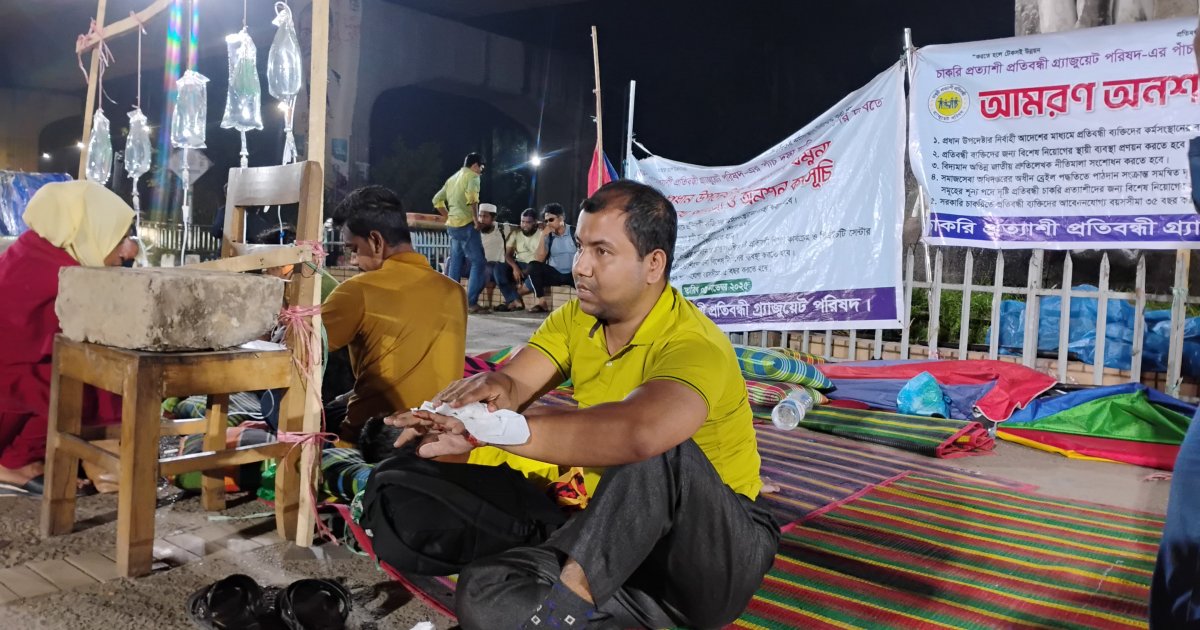Job-seeking graduates with disabilities began a hunger strike unto death on Saturday, marking the 21st consecutive day of their protest demanding immediate government action on their five-point charter of demands.
The strike, organized by the Chakri Pratyashi Protibondhi Graduate Parishad (Job-Seeking Graduates with Disabilities Council), began nearly 72 hours ago at the Raju Memorial Sculpture on the University of Dhaka campus. As of Saturday evening, two of the protesters had reportedly fallen ill but refused medical treatment, insisting they would continue until their demands were met.
At the same time, the council maintained its symbolic “March to Jamuna”, a procession toward the chief adviser’s residence that has become a hallmark of the movement.
“We will continue our hunger strike until the government fulfills our five demands. Even if it costs our lives, we will fight to secure the rights of educated persons with disabilities in this country,” said Ibrahim Khalil, one of the fasting protesters, in an interview with Dhaka Tribune.
The demonstrators have been staging sit-ins and marches since mid-October, calling on the interim government to address what they describe as “decades of systemic neglect” of graduates with disabilities who remain unemployed following the abolition of the quota system in 2018.
Health concerns rise
Witnesses said several participants appeared weak and dehydrated by Saturday evening, with some requiring assistance to remain seated. Volunteer medical professionals at the site expressed concern over the deteriorating health of the hunger strikers. Rights activists visiting the protest site urged the government to engage in dialogue before the situation worsens.
The five-point charter
The protesters’ revised charter includes:
- Executive Employment Order – Immediate employment for persons with disabilities who have remained jobless since 2018.
- Permanent Special Recruitment – A sustainable recruitment mechanism every two years through transparent, disability-inclusive procedures.
- Scribe Policy Reform – Amendments to the National Scribe Policy to ensure fair examination access for candidates with disabilities.
- Priority Employment for Visually Impaired Candidates – Priority recruitment for qualified visually impaired persons under the Department of Social Services.
- Age Limit Extension – Raising the upper age limit for government job applications to 35 years for persons with disabilities.
Despite repeated meetings with officials from the Chief Adviser’s Office and the Ministry of Social Welfare, the demonstrators said no visible action has been taken. In recent weeks, leaders from political parties, rights groups, and student organizations have expressed solidarity with the movement, urging the interim government to address the demands before the situation escalates into a humanitarian crisis.



